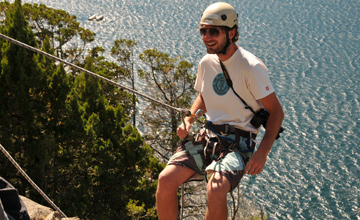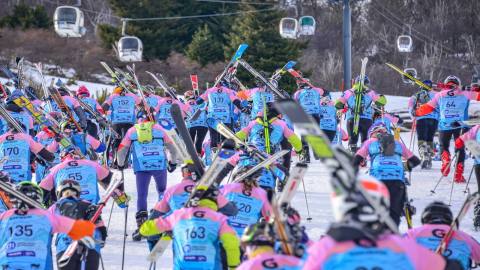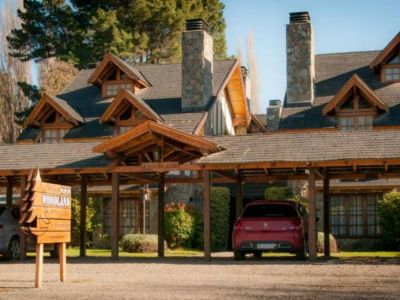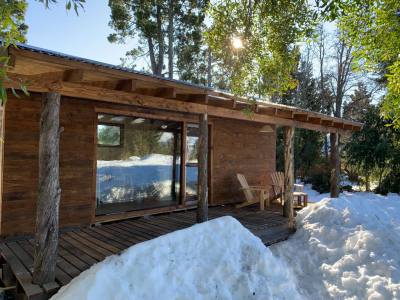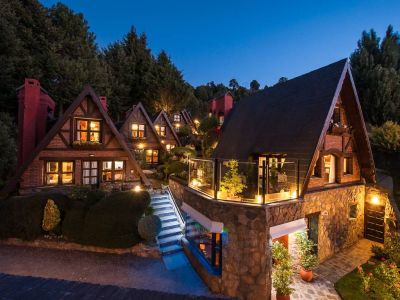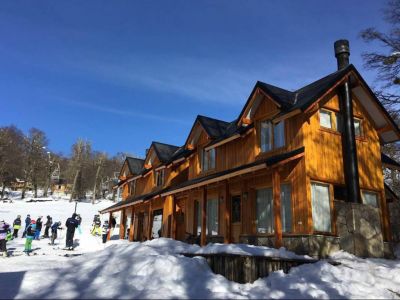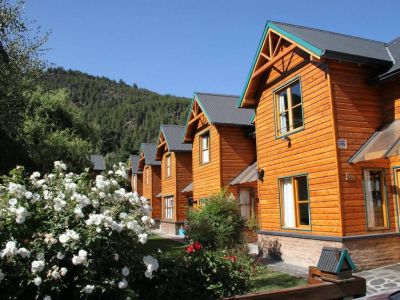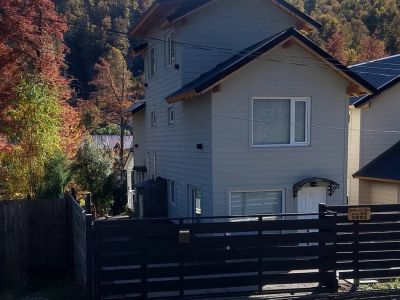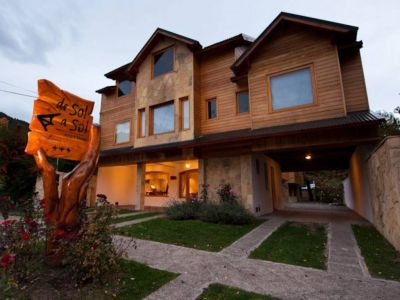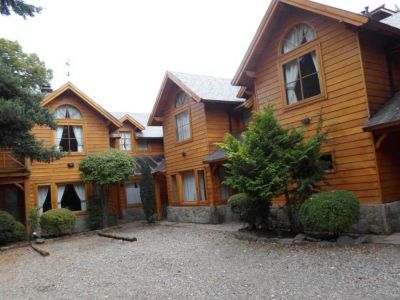The Ñivinco Falls are usually left out of the traditional tours. Hidden among the authentically Patagonian trees, it invites us on a hiking tour that will be fruitful when we come close to the water course and see it appear immense, almost histrionic before our eyes. We drove away from San Martín de los Andes along Route 234, best known as the 7-Lake Road. We headed for Villa La Angostura and traveled 50 kilometers along a paved road and the next 10 kilometers along a gravel road. We arrived in the metallic bridge over the Pichi Traful River and in the park ranger house in the Villarino District. From that spot onwards, the trip odometer showed 6.2 kilometers and on the right hand there appeared a detour with no sign post. We turned into it and drove along about 700 meters until we found an indicator of the Nahuel Huapi National Park that invited us to park our vehicle. Adventure began. Carrying a small backpack, we resolved to wade the first creek that appeared before us. It was narrow and its waters were very cold, but it represented no high difficulty, even though it may be a little more plentiful in the meltdown season. As we left the water, another signpost showed us the way. A small woodland of shrubby vegetation gave way to a ñire and caña colihue forest around us. The old man’s beard hangs here and there giving evidence of the high degree of oxygenation of the site. Only our murmur and our steps on the trail could be heard. The rest was all silence.
Secret Ñivinco Cascade
Each vegetable species features its own characteristics: the ñire, its leaves with curly borders; the chinchin, its intense glow; the cañas colihue seem to be disarranged. Once in a while, some numbered yellow mark confirms that we are on the correct path. The park ranger had placed some logs in the shape of steps in the uneven path. We began to hear the waterfalls. At first, timidly and then more sonorously. We were getting closer. We held our breath when we finally spotted the creek on the right. We covered the remaining stretch along a very narrow trail which had been opened up with a machete. Over our heads, a green roof of ñires. The noise of the water became more intense. We were about to get to our destination after forty minutes of hiking at a quiet pace. We exchanged some words with a group of travelers who were on their way back from the falls and they told us how to get to the vantage point. As we got there, we were welcomed by a beach featuring rocks of various colors. In front, the largest arm of the creek lets a water curtain of strong sound fall down over a big slope. To the left, an impressive sight: several falls produced by an abrupt slope that ends in the shape of a zigzagging staircase lets the water slide softly, almost with a murmur. The two arms of the creek pour their waters into a central pool, not so deep, that invited some children that were camping around the area to freshen up in its waters. Several children were plunging into the pool from a rock. They dared one another to start a swimming race. They screamed with happiness and ran out of the water back to the rocks in order to dive again from all the corners in the waterfall. A sunbeam would crown the scene. We beheld that show for a couple of minutes before continuing our hiking tour along the border of the waterfall up to the vantage point. Each step lets hikers cross the creek from one side to the other quite easily on plain rocks free of moss. Up there, in a small pool, a couple of torrent ducks, a local endangered species, enjoyed the scenery. At the end of the tour, we stayed there for a while watching this cascade we had found by word of mouth. We returned following the same trail we had used to reach this place. We did not forget to taste those violet fruit given by the michai. According to tradition, they will make us go back some day.
Mónica Pons
Eduardo Epifanio
The way back, you may stop on the shores of Lake Falkner or Villarino to watch sunset.




